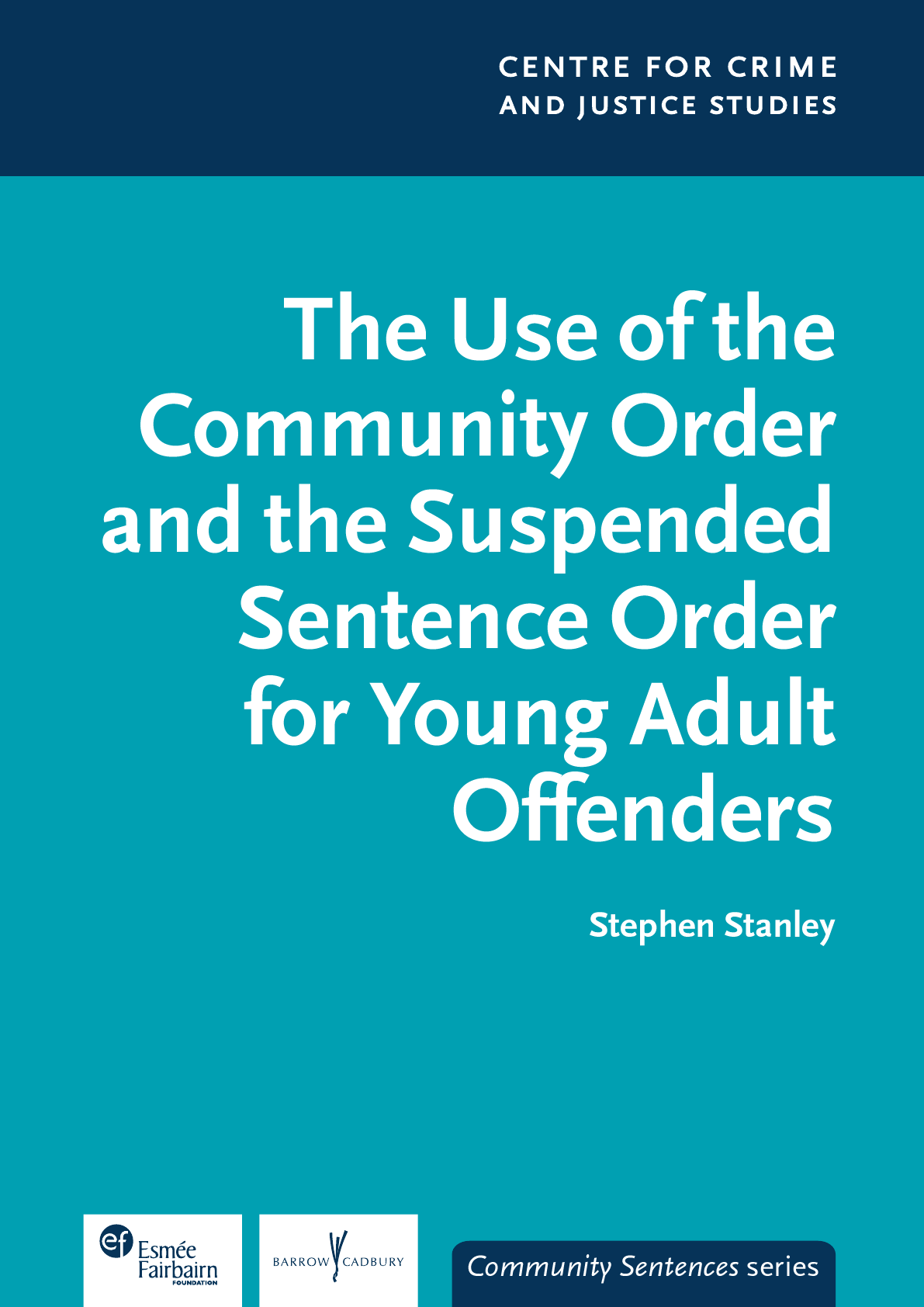Community sentences need to be more responsive to the needs of young adult offenders, according to a report published today by the Centre for Crime and Justice Studies.
The report, which examines the use of the new Community Order and Suspended Sentence Order for adults aged between 18 and 24 found that there is a heavy reliance on unpaid work programmes and much less use of education, training and employment programmes and substance misuse programmes despite the fact that young adults have distinct needs in these areas.
The use of the Community Order and Suspended Sentence Order for Young Adult Offenders, supported by the Barrow Cadbury Trust and Esmée Fairbairn Foundation, says there has been 'little innovation in the practical application of the new sentencing arrangements for young adults with the Community Order appearing to mirror the old community sentences'. It concludes that there is a case for reviewing the responsiveness in sentencing for young adult offenders.
The report also notes that the there is no evidence that the Community Order or the Suspended Sentence Order is resulting in a reduction in the number of young adults given custodial sentences, as was hoped prior to their introduction in April 2005.
Speaking today the deputy director of the Centre for Crime and Justice Studies, Enver Solomon, said:
Whilst the current focus is on prison overcrowding it is vital not to over look the use of community sentences. Our research has found that these sentences are currently not being used as effectively as they could be for an extremely significant group of offenders. It raises important issues for the Ministry of Justice in its attempt to promote the greater use of community sentences.
The Chief Executive of the Barrow Cadbury Trust, Sukhvinder Stubbs, said:
In the current criminal justice system, there is no legal difference between a young adult, aged 18-24 and a 40 year old. This hampers the ability of sentencers to be responsive to young adults, who have greater needs than their adult counterparts. Barrow Cadbury calls for a seamless criminal justice system where treatment of young adults is dependant on their level of maturity rather than their age.
